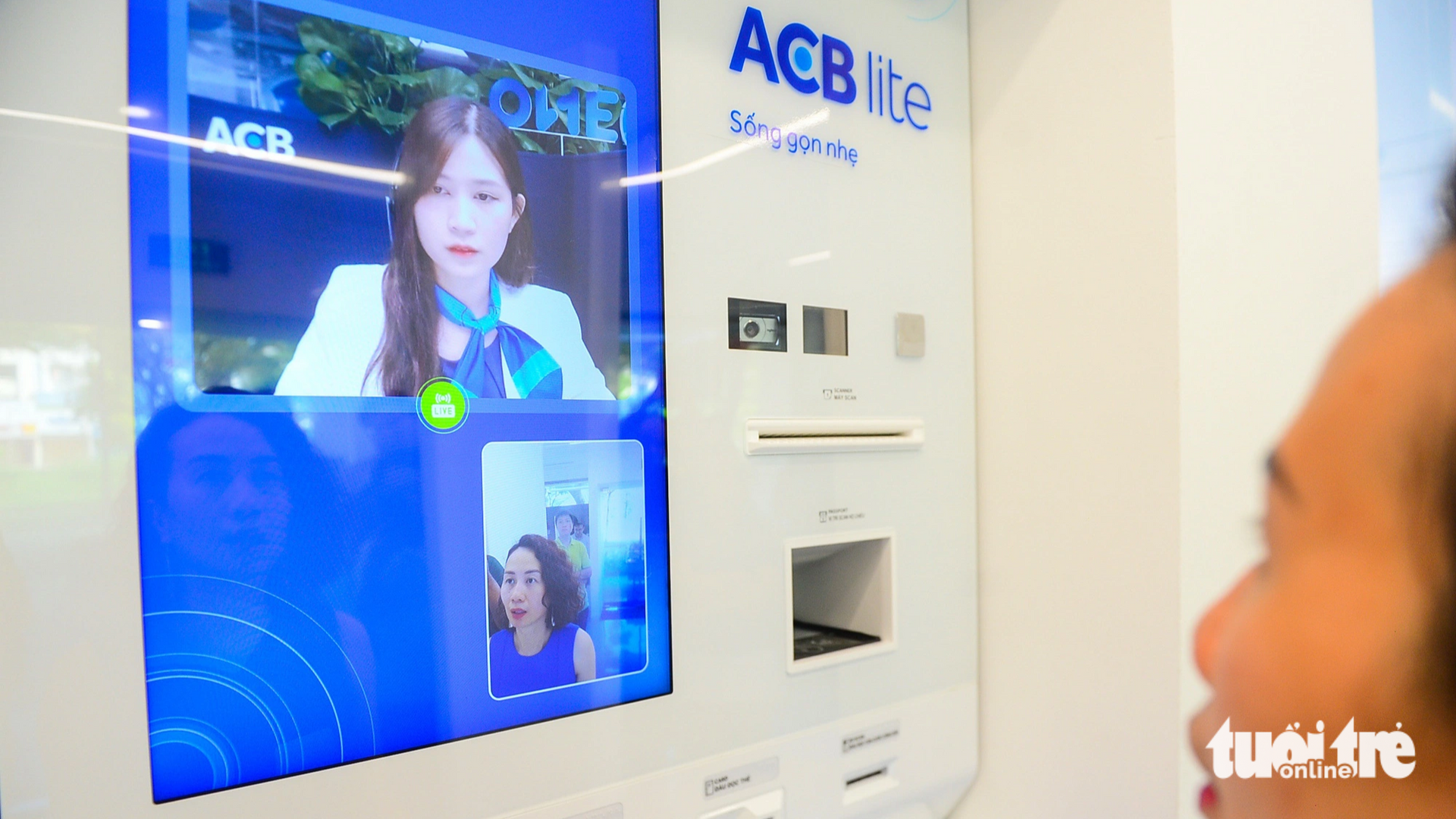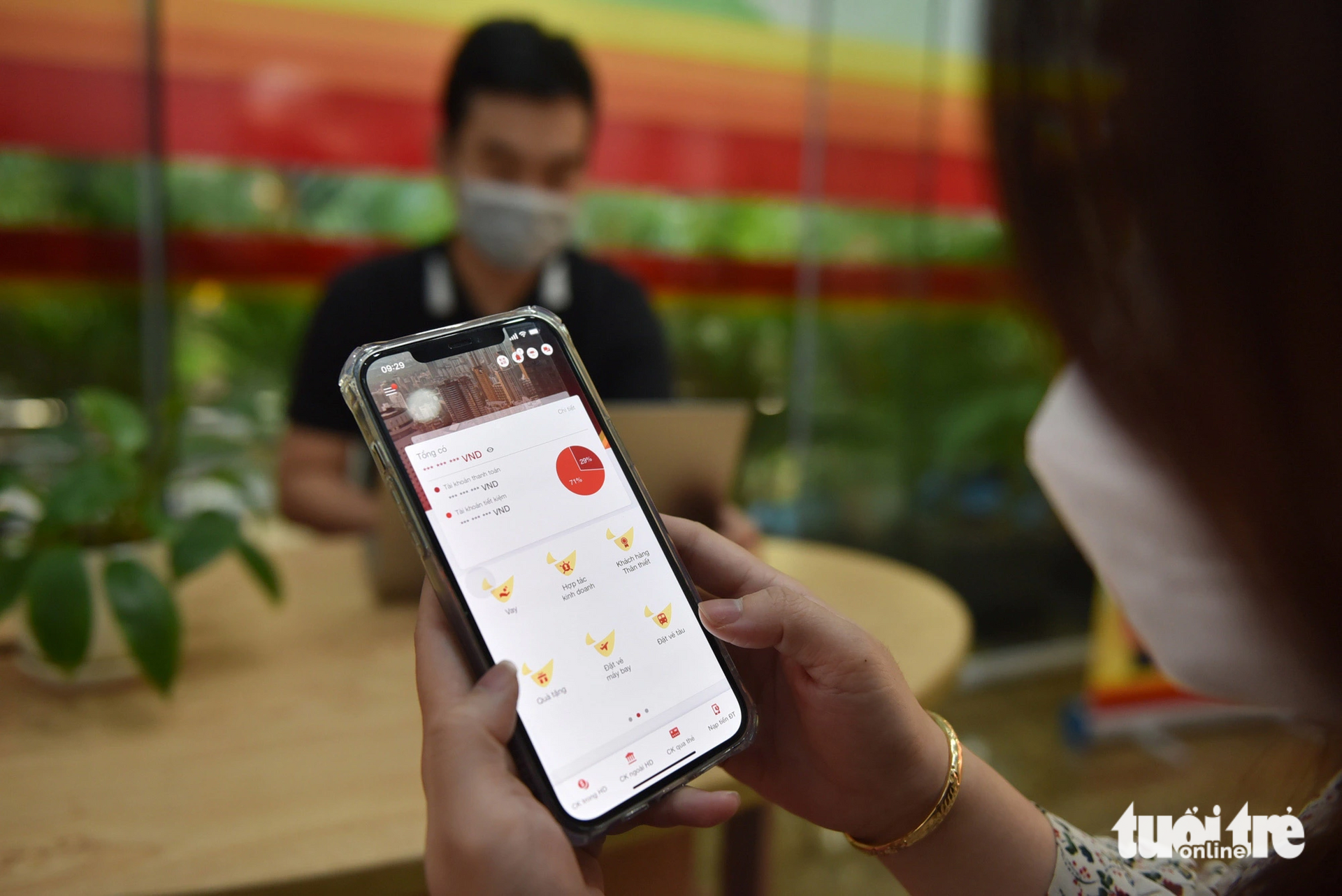Cybercrime - targeting users' bank accounts - has never been so rampant. Users are psychologically manipulated and lose their guard. Many people have fallen into the trap.

Faced with the outbreak of cybercrime - targeting bank accounts - banks are constantly improving security and warning customers.
Faced with this reality, banks have adopted a series of measures to increase self-defense as well as apply new technologies to enhance security for users.
Sharing with reporters, Ms. TTC (Bac Ninh) said her health had seriously declined after losing more than 26.5 billion VND just three days after opening accounts at two banks. The incident happened in April 2022, more than a year has passed but she is still in shock. She asked for help, reported to the authorities, and even filed a lawsuit but has not yet recovered her money.
She said that last April she received a phone call from someone claiming to be a traffic inspector in Da Nang, accusing her of causing a fatal accident in Da Nang and that she had to report it.
When she completely denied this information, the caller connected her to a man named Hai who claimed to be a police investigator. Mr. Hai said that Ms. C. had an arrest warrant from the prosecutor's office related to a drug ring. Currently, two people have been arrested and they said they had 20 billion VND in an account under Ms. TTC's name.
"I said I didn't cause any accidents and had nothing to do with drug trafficking, but they read my lost ID card number correctly. Because I was afraid that the criminals would endanger my family, I followed their instructions to buy a phone and transfer the SIM to this new phone so they could send information and pictures via Viber.
This person also told me to immediately open accounts at two banks they designated and deposit 20 billion into each account to prove that this was my money and had nothing to do with the drug ring," Ms. TTC said.
After ending the phone call with the man named Hai, Ms. TTC hurriedly went to two different banks to open accounts using her passport. The man named Hai repeatedly urged her to deposit money, and fearing that she would be harmed, Ms. C. borrowed more than 26.5 billion VND to deposit into two new accounts.
On Monday, April 25, 2022, Ms. C. went to the bank to make a statement and received a notice that there was no money left in her account. The total amount of money in the two accounts, more than 26.5 billion VND, was gone, but she did not receive any notification via text message from the bank.
She reported to the police and filed a lawsuit with the People's Court of Tu Son City (Bac Ninh) requesting a review of the account opening process and security of her account.

Experts recommend that users need to be more vigilant because cyber criminals are becoming increasingly sophisticated.
Mr. Nguyen Tran Nam, Director of Digital Banking at Asia Commercial Bank (ACB), said that in recent years, high-tech criminals have shifted from illegally penetrating systems (also known as hacking) to writing software and malware that exploit human weaknesses, using fraudulent tricks to steal money faster, easier and leave fewer traces.
The latest report from the Anti Phishing Work Group shows that the number of online fraud cases has skyrocketed eightfold in just two years 2020 - 2022. "From the second quarter of 2023 until now, there has been a trick of impersonating tax and social insurance applications containing malicious code to track and steal transaction information.
Besides, there are many other tricks and schemes with the same purpose of luring people to reveal confidential information or make money transfers for scammers and have their money stolen," said Mr. Nam.
According to Mr. Nam, ACB has continuously warned customers through many channels such as website, fanpage, Zalo, ACB ONE application and sent emails directly to all customers. In addition to communicating about scams, ACB also guides customers on principles that should not be followed to ensure safety when transacting through digital banking channels.
In particular, the ACB ONE application has the function of detecting suspicious applications for customers. The ACB system temporarily blocks customers' transactions on the ACB ONE application if suspicious applications are detected. However, the most important thing is that customers need to be more vigilant and protect their personal phones.
HDBank representative also said that in recent times, technology has been applied in the banking sector to help promote non-cash payment channels and standardize account holder information data, thoroughly handling the situation of renting, borrowing or stealing chip-embedded citizen identification information to open junk accounts and virtual accounts. This is an important step in fighting technology crimes.
HDBank applies online identification solutions (eKYC) such as OCR technology to automatically extract customer information on identification documents, Facematch technology to accurately verify customer information, and to verify customer portrait images with images on identification documents as belonging to one customer.
According to many experts in the field, the booming digital transformation movement has brought many daily activities "to the cloud", online shopping has exploded, along with the popularity of cashless payments... while the awareness and security knowledge of the majority of users is still limited, which is the reason why fraudsters continuously target Vietnamese users.
"Mobile devices are a treasure trove of messaging and social media apps that we use. Meanwhile, cybercriminals are also lurking on these platforms, waiting for their prey to fall into their traps," said Adrian Hia, Managing Director of Kaspersky Asia Pacific.
Regarding Vietnam, Mr. Hia said: "Over the years, the government and local businesses in Vietnam have made significant efforts and progress in creating a safe digital environment. However, threats to information security and network security still exist, requiring businesses as well as individual users to be constantly vigilant.
Our latest country-by-country statistics show that cybercriminals continue to innovate new scams targeting individuals and businesses. That's why we need to continue to work hard to protect our assets and data online."
Mr. Nguyen Quoc Hung - General Secretary of the Vietnam Banking Association - assessed that in any service sector, no matter how modern, criminals still find ways to find loopholes to exploit, thereby appropriating customers' assets. In the application of technology, as we have talked a lot about the benefits of digital transformation and people benefit, banks benefit, and society has positive changes.
However, besides that, we will also have to face some risks. In reality, there are still cases where criminals take advantage of loopholes to take advantage of and steal customers' money. A typical case is when customers accidentally provide personal information such as citizen identification, card number, account number, password, OTP code or payment code... when participating in social networks, using the Internet, shopping online... to criminals.
Another common occurrence is that scammers use fake messages, sending links/brandnames containing malicious code to scam and steal money from customers' accounts.
According to a study by security firm Kaspersky, in 2022, the company's cybersecurity system prevented a total of more than 17.84 million email phishing attacks in Vietnam, of which nearly 1.57 million attacks targeted businesses and the remaining nearly 16.28 million targeted consumers in Vietnam.
Meanwhile, data from the Department of Information Security, Ministry of Information and Communications, shows that in the first 11 months of 2022, there were more than 11,200 cyber attacks in Vietnam. Notably, the number of phishing attacks accounted for 35%, showing that the severity and scope of cybercrime attacks are constantly expanding.
Phishing attacks are a type of attack in which criminals attempt to obtain sensitive information, such as usernames, passwords, and financial data from users by masquerading as a trusted entity. These attacks often involve the use of fraudulent emails, text messages, or websites designed to trick recipients into disclosing information.
According to Tuoi Tre